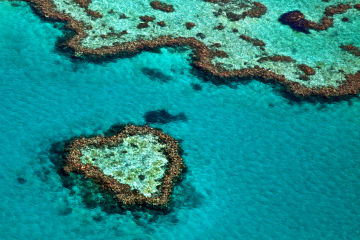News ·
Sharks to be revered (not feared)
Dive into the awe-inspiring beauty and incredible diversity of sharks.
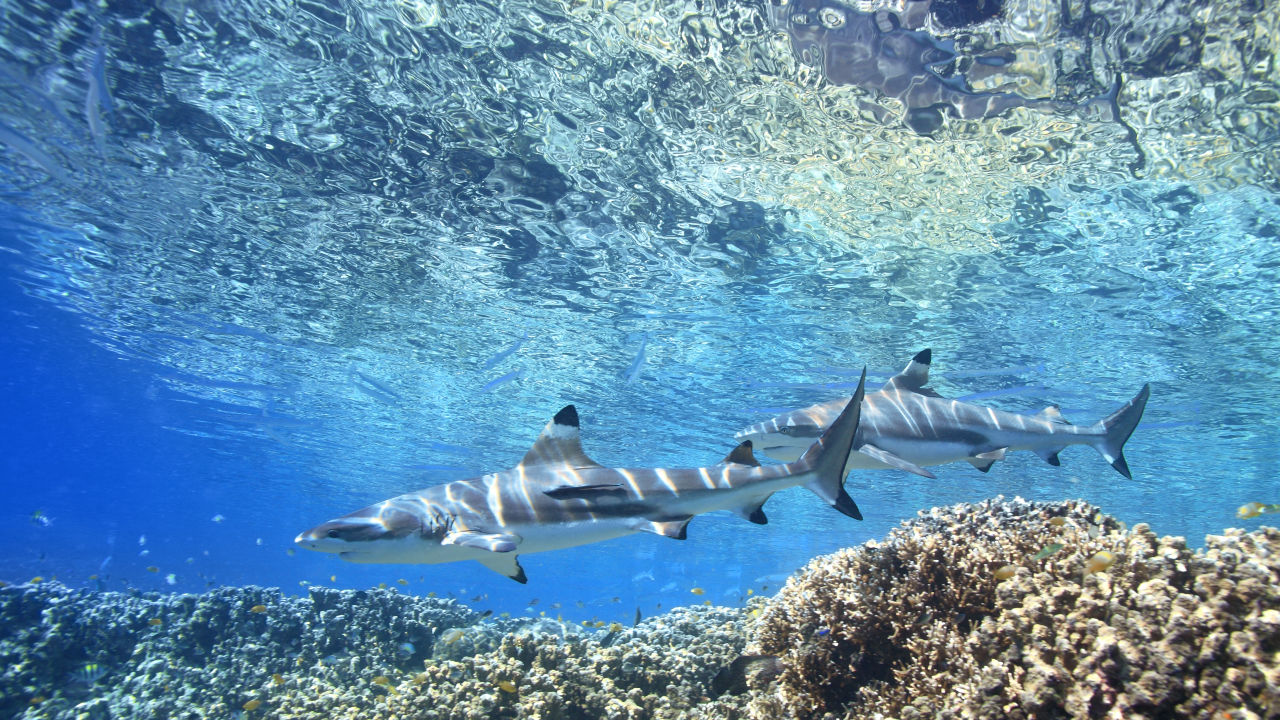
Sharks are often portrayed as fearsome predators but they are actually remarkable ecosystem engineers. Sharks indirectly support the health of coral reefs and other habitats by regulating the populations of fish, preventing overgrazing and maintaining the delicate balance of these fragile ecosystems. We've uncovered eight remarkable species of sharks that have captured our hearts and our imaginations.
#1. Whale shark
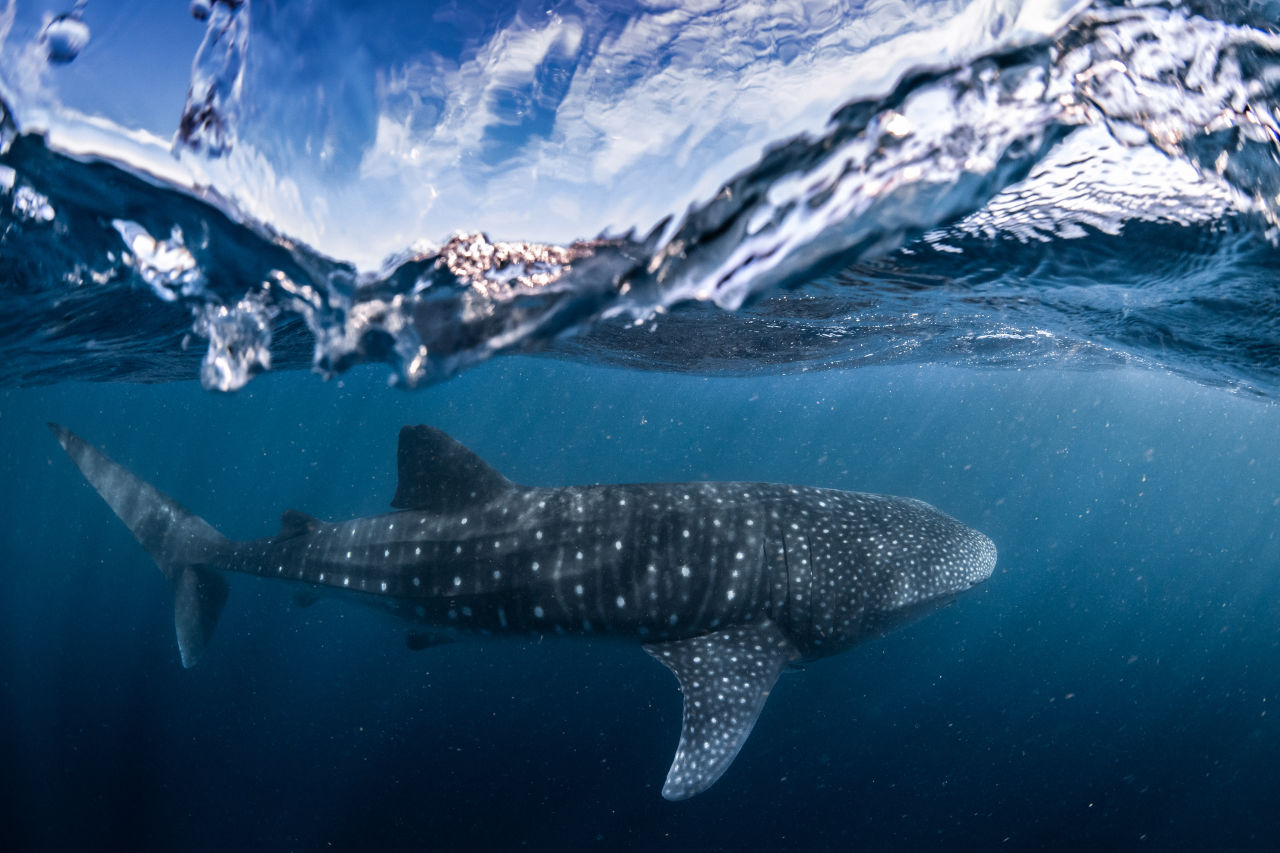
The whale shark is not technically a shark, it's a fish and the largest one in the world. As filter feeders, they help control populations of plankton and other small organisms, contributing to the stability of marine ecosystems. Their beauty, sheer size and docile nature means swimming with them is a popular and unique experience.
#2. Hammerhead shark
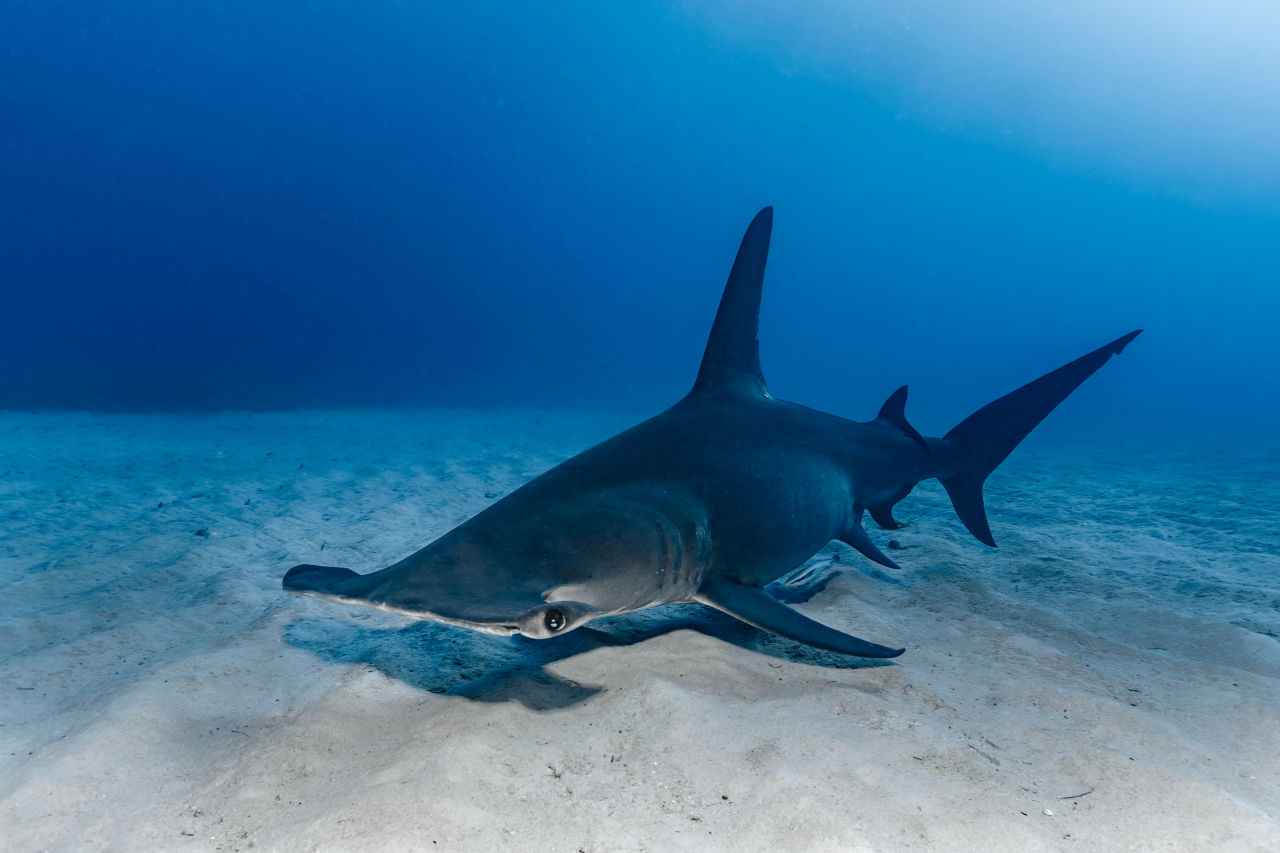
The hammerhead shark is a creature of unparalleled elegance and mystery. Its unique head shape sets it apart and those remarkable eyes, positioned on the outer edges, gift the hammerhead with an unparalleled field of vision. With a streamlined body, powerful fins and sharp eyesight, the hammerhead shark is a master of the hunt. Conservation efforts are crucial to ensure that this critically endangered species and apex predator can keep maintaining the delicate balance of life on our Reef.
#3. Great white shark
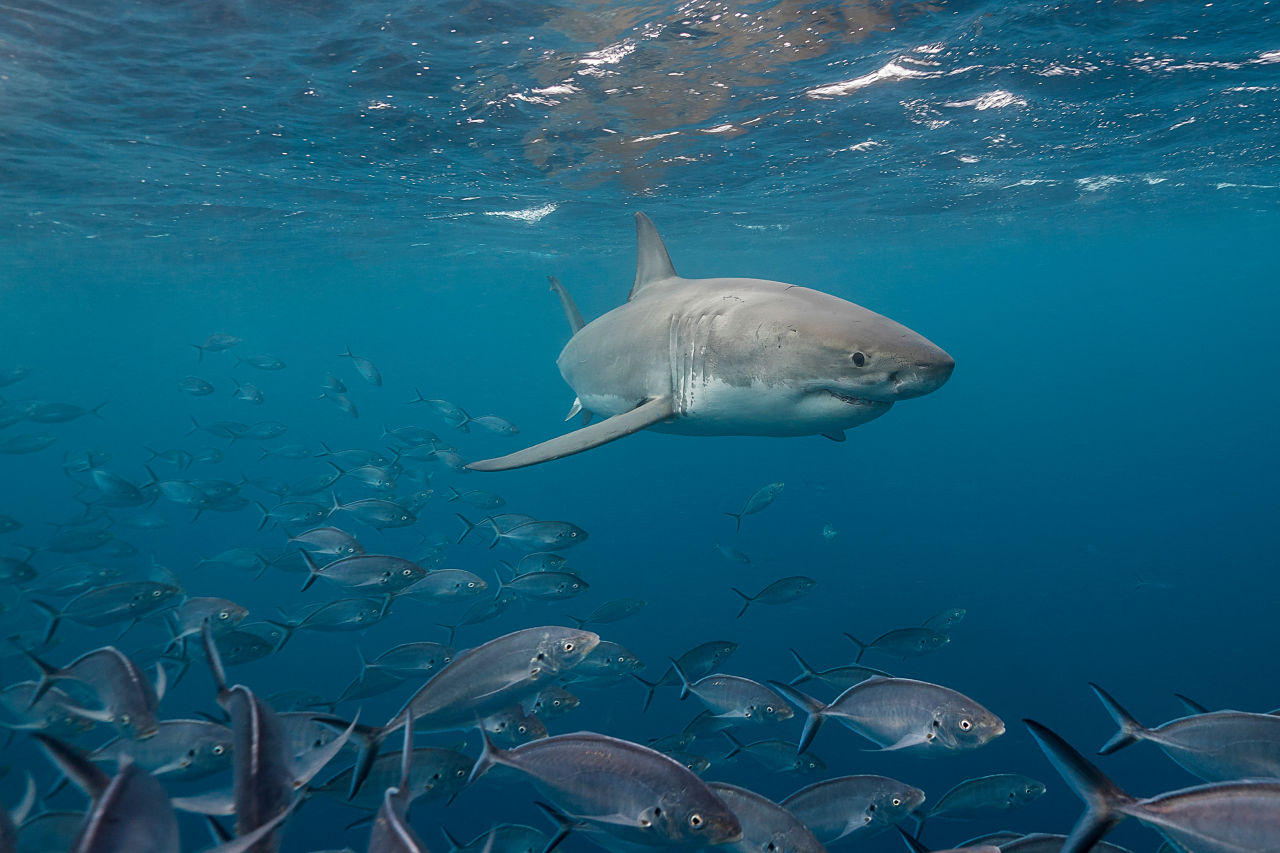
The great white shark is the king of the ocean. Its torpedo-shaped body and powerful tail allow it to effortlessly cut through the water, reaching astonishing speeds of up to 56 kilometres per hour (35 miles per hour). Despite its ferocious reputation, great white sharks display complex social behaviours. They are highly intelligent creatures, capable of learning, problem-solving, and even displaying curiosity towards humans. By better understanding their behaviour, we can dispel myths, promote conservation efforts, and ensure the survival of the great white shark for generations to come.
#4. Whitetip reef shark
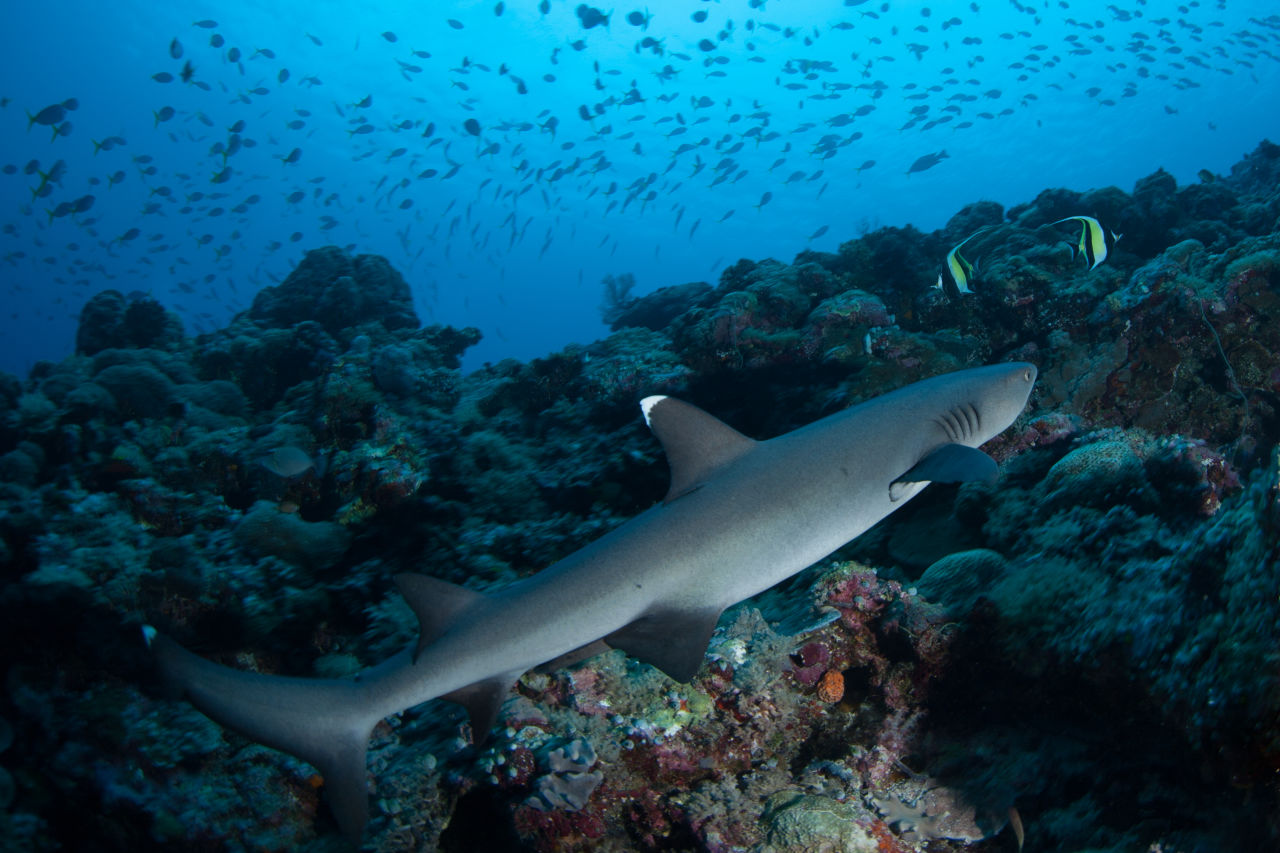
As its name would suggest, the whitetip reef shark has white tips on its fin. This primarily nocturnal species will hunt at night – sometimes in groups – and they use their slender bodies to squeeze into crevices and holes where their prey hide. Whitetips are rarely aggressive towards humans but may approach divers out of curiosity.
#5. Tiger shark
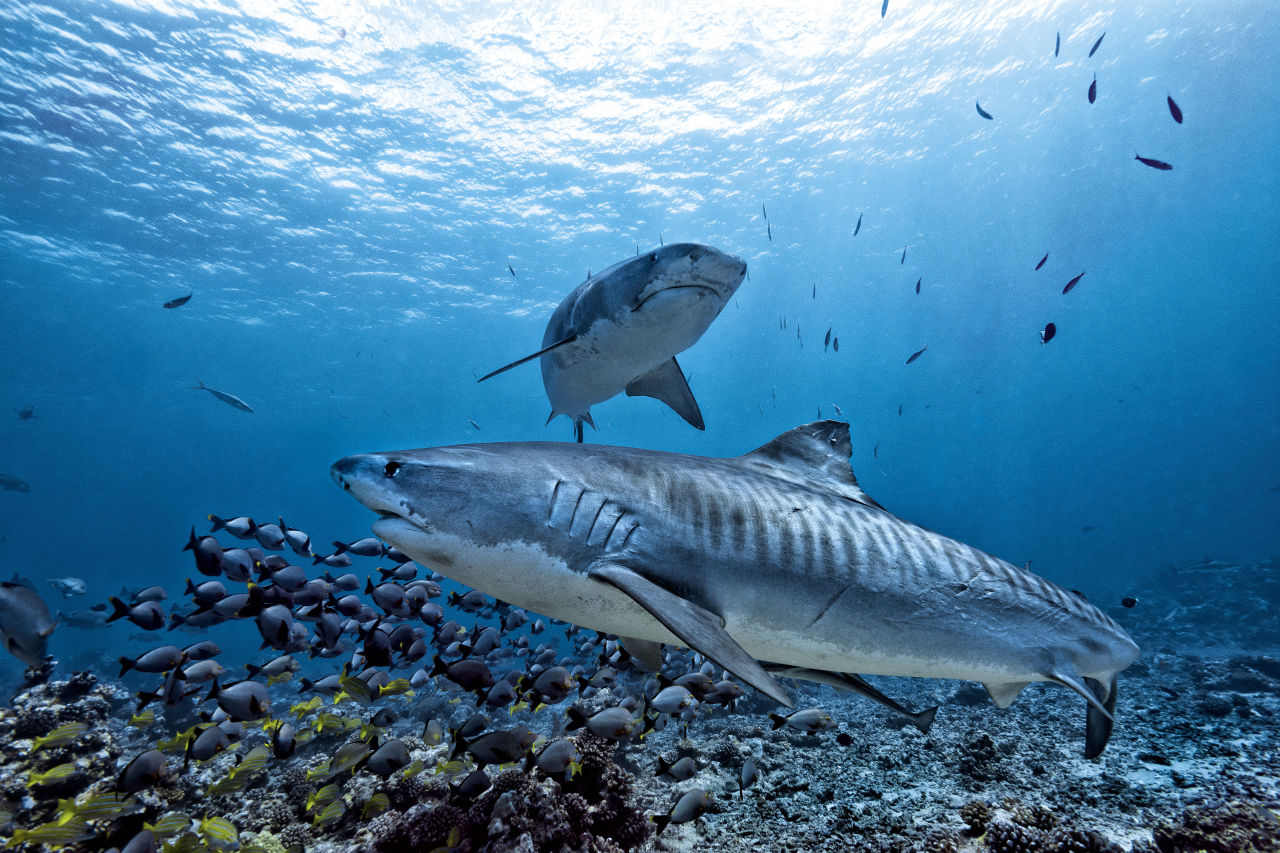
Tiger sharks have distinctive dark vertical stripes that resemble a tiger’s pattern. Their powerful jaws, unique hunting strategies and diverse diet have earned them a reputation as ‘garbage disposals’ because they can eat almost anything. They are one of the most diverse and adaptable predators in the ocean, often cooperating and communicating with each other when hunting in groups.
#6. Wobbegong
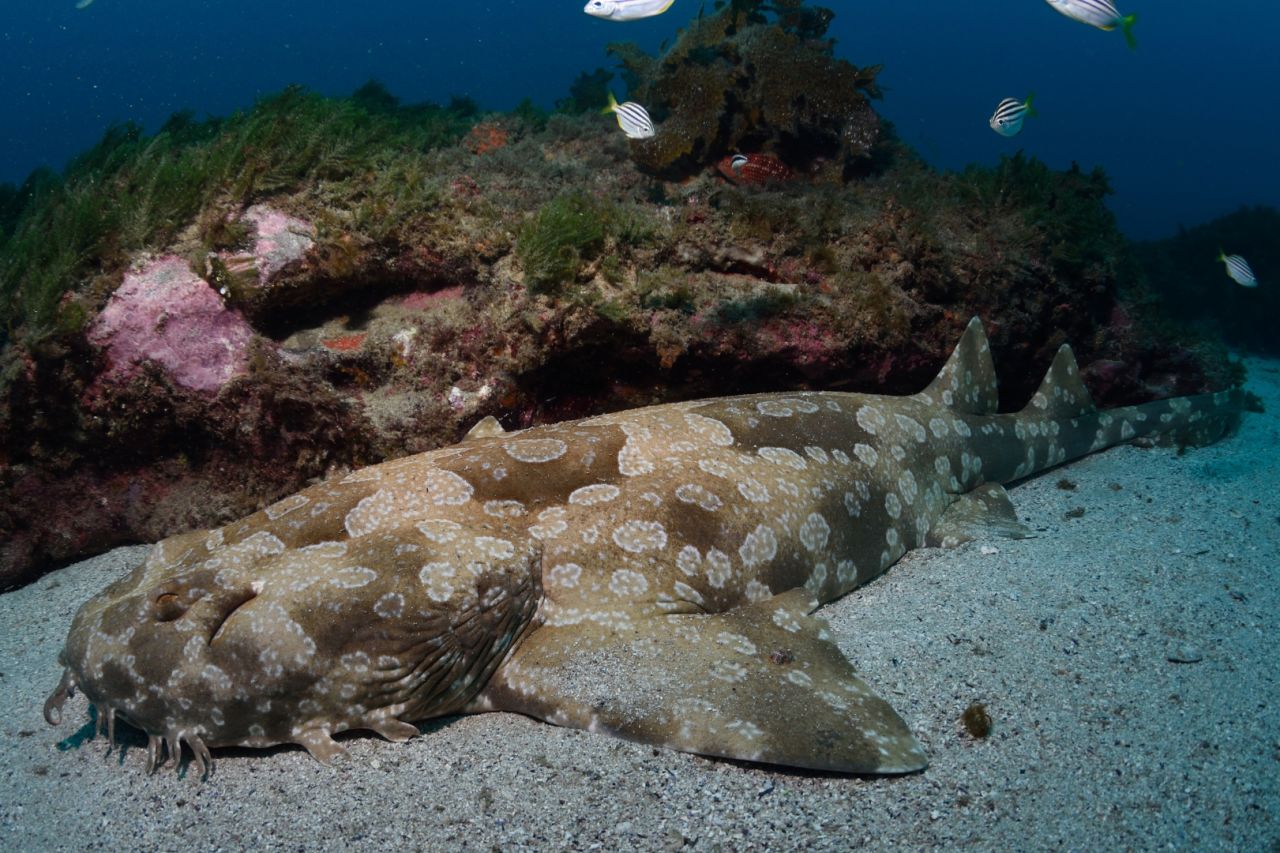
Known as the carpet shark, wobbegongs are a master of disguise. Their camouflage ability helps them blend into their surroundings, making them excellent ambush predators. They are not known for their speed, so wobbegongs inhabit a bottom-dwelling lifestyle to take advantage of the various prey that also live on the ocean floor, reefs or rocky habitats.
#7. Epaulette shark
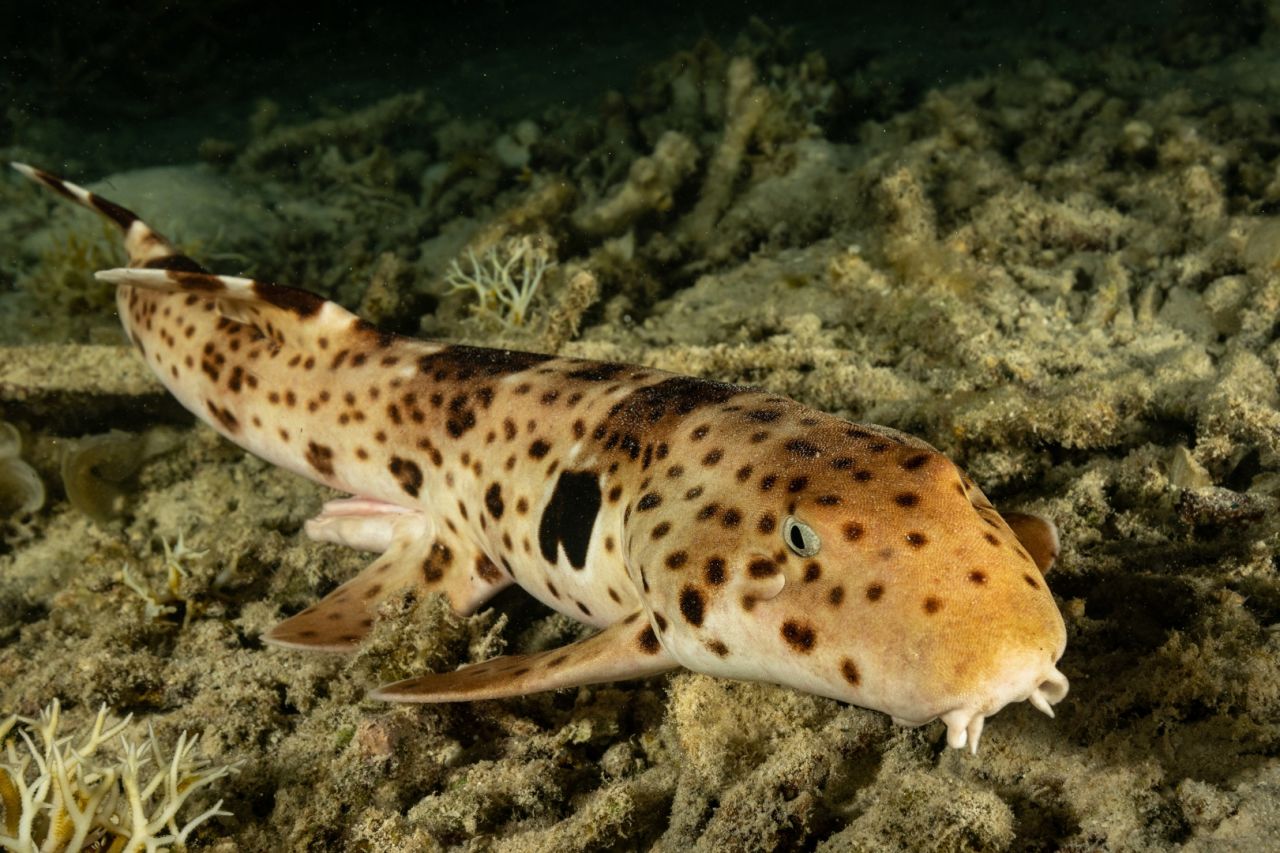
The epaulette shark is a marvel of creation. It uses its pectoral fins to "walk" through shallow water and even crawl over land for short distances. This adaptation allows them to navigate within tide pools, hunting for prey in hard-to-reach places.
#8. Nurse shark
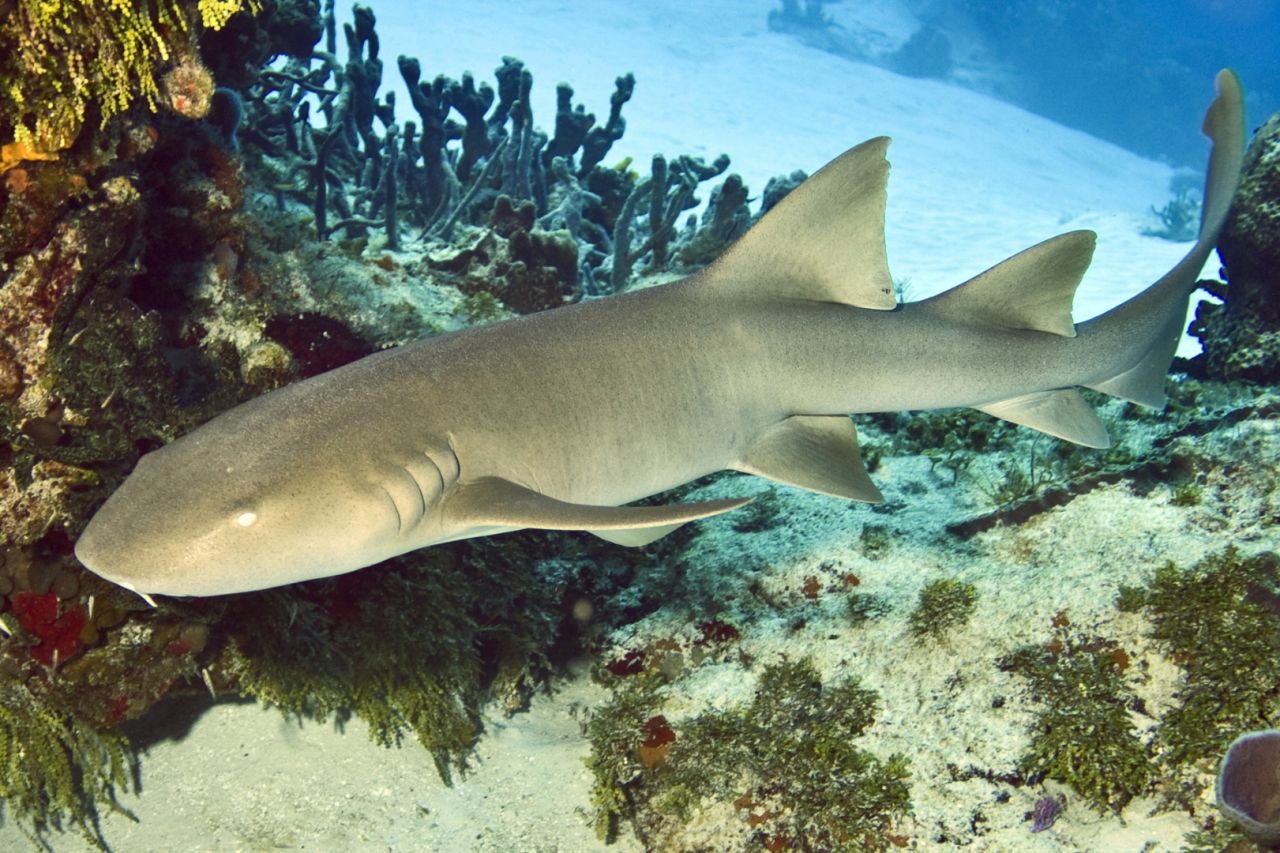
Nurse sharks are known for their relatively calm and non-aggressive demeanour. They are bottom-dwelling sharks and will often rest on the ocean floor during the day and feed at night. Nurse sharks have a unique feeding technique called suction feeding whereby they create a vacuum-like effect by rapidly opening and closing their mouths to suck in prey from the surrounding water.
#The importance of sharks
It is crucial that we recognise the significance of sharks in maintaining healthy oceans. When shark numbers decline, a ripple effect is set in motion. The absence of these apex predators disrupts the delicate ecological harmony, leading to imbalances, loss of biodiversity and cascading consequences throughout the food chain. By safeguarding their habitats, advocating for responsible fishing practices and promoting awareness, we can ensure a brighter future for both sharks and the delicate marine ecosystems they inhabit.




